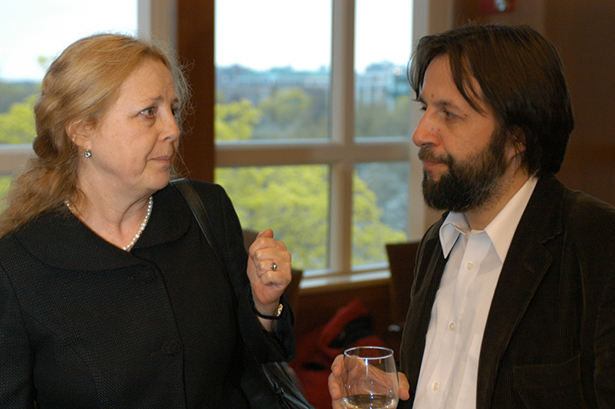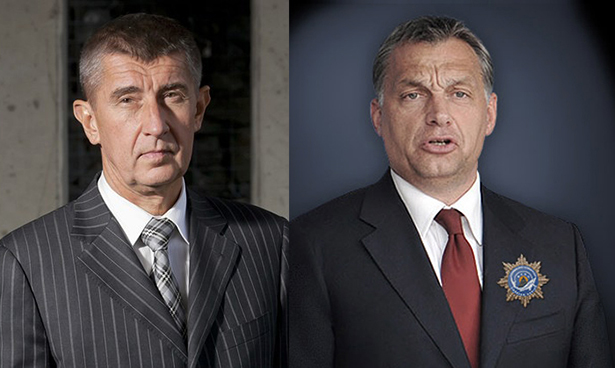NEWSLETTER
|
Ford in Eastern Europe: Lessons Unlearned By Irena Grudzinska Gross
During the Cold War, the Ford Foundation had programs related to the Soviet Union and Eastern Europe that were neither numerous nor extensive and were run through Western institutions funding fellowships, exchange programs and other indirect ways of strengthening social sciences and educating prospective democratic leaders.
When the years 1989-1992 brought about the end of the communist regime in Russia and in the Soviet bloc countries, the Foundation moved its work to the region and split the program into two parts: Russia and East European, which included Poland, Hungary, the Czech Republic and Slovakia.
In Moscow, an office was opened in 1995 (and closed in 2009). The East European program was run from New York and phased out around 2004, the time of its target countries’ accession to the European Union. That decision happened on my watch, since I was running that program till 2003. I did not support the closing, but I did share the belief standing behind it: that the process of democratization of the region, though difficult, was certainly speedily going ahead. And that, by then, there was one Europe, not the “new” and the “old” one.
That optimism seemed quite justified. The Foundation was just one of the many donors and Western institutions that provided funds and technical expertise that helped move the region closer to the West. The reaction in the four East European countries was very positive. We felt invited and our work with individuals, NGOs and other groups in those countries was exhilarating. The quick growth of the number of civil society institutions, the progress of judiciary reforms and the region’s economic integration into the global West promised the smooth development of democratic systems.
The East-Central European countries, after all, passed the human rights and democratic institutional exams that secured their membership in the European Union. The commitment, talent and energy of people involved in the reforms guaranteed the genuine nature and therefore the future of these many changes. Though economic reforms radically disempowered industrial workers, there was optimism as to the possibility of job creation and adaptability of the open-borders societies.
Among our grantees, the Polish Helsinki Human Rights Foundation was watching over the implementation of human rights in its country and developing programs farther East. The European Roma Rights Center, based in Budapest, defended the most endangered East European minority. There were other human rights organizations in the region, working together to monitor the implementation of the newly accepted European laws and regulations.
Organizations such as the Autonomia Foundation in Hungary gave grants to local Roma communities, helping their economic self-sufficiency. The Borderland Foundation in Poland used arts and culture to promote understanding in multi-ethnic groups. The Ford Foundation, together with other donors, supported the development of women’s rights organizations. The Stefan Batory Foundation (the Polish part of the Open Society Network funded by George Soros and an active partner of the Foundation), became a sound private philanthropy and a basic pillar of the civil society sector in Poland. Our grantees included ecological groups in Slovakia, cross-region women’s groups, community and local governance organizations, clinical legal education and academic programs in gender and legal matters.
All of this against the background of broader rapid, often radical, systemic transformations. People moved to study and work in other European countries, cities and roads were developed and, with European Union subsidies, peasants turned into farmers. Things seemed to go very well—no, they did go well!
But after 2004 there was a real change of priorities. The legal and democratic political framework was taken for granted, the stress on civil society diminished and the massive EU funding was transmitted through the governments, reinforcing central state structures that had been a bit weakened before. At the same time, a resistance to the changes developed and countervailing trends appeared, primarily the growth or return of nationalism and disenchantment with “Europe”.
There were signs of such attitudes before 2004 as the region was coming out from under a long period of oppression, but it took some time to reverse the previous direction. Two catastrophic phenomena stopped the European integration momentum: the 2008 financial crisis and the refugee influx to Europe.
The European Union attempted to assign to its members quotas for the redistribution of refugees but, as if separating themselves from Brussels, the four East European countries united in their refusal to accept them, even though the numbers of refugees assigned to them were quite low.
The anti-migration platform allowed the Czech party ANO to win elections in 2017. Its prime minister, Andrej Babiš, is the second-richest person in the country, governing with the support of communists and right-wing nationalists. In Slovakia, the prime minister, Robert Fico, also spoke against migration but kept a much more pro-EU stance. The country accepted 100 (one hundred!) refugees, as far as I could ascertain.
Strong anti-immigration policies helped Fidesz, Victor Orbán’s party, consolidate power after a comfortably won election in Hungary in 2010. During its early transition to democracy, in the 1990s, that country seemed to be well ahead of Poland, the Czech Republic and Slovakia in its legal and judiciary reform. But after its electoral victory, with a two-thirds parliamentary majority, Fidesz quickly moved to strangle the Constitutional Court and, in 2012, voted in a new constitution, which guaranteed the continuity of its hold on power. Before 2015, it passed more than a thousand laws and regulations that remade the state’s framework.
The regime change was explained by Orbán as a move from liberal to illiberal democracy. Since it was rather non-democratic, pundits called such an ideology populism. It involved curbing media, purging the state apparatus and rewriting history, especially of World War II responsibility for Hungary’s alliance with Nazi Germany and collaboration in the extermination of Jews.
Hungary was one of the routes for the influx of refugees, so the government built some walls. George Soros, a Hungarian survivor of the Holocaust, was elevated to the position of public enemy number one for, allegedly, planning to inundate Hungary with Muslims and diluting its Christian culture. Just as in Russia, new laws limited the ability of NGOs to receive foreign funds. This was only one of the ways in which Orbán followed the example of Russian illiberal non-democracy.
The developments in Hungary were attentively followed by Poland’s Law and Justice party with Jarosław Kaczyński at its head. In 2015, that party, too, won elections (for the second time), and the same process of “illiberalization” of Polish democracy was put in motion. Media, courts and the Constitutional Tribunal are already eviscerated. A similar ideology stands behind Fidesz and Law and Justice party programs: resistance against the influence of the European Union; the conviction that funds generously disbursed by the EU are a still insufficient repayment for past sacrifices of Polish and Hungarian nations; that Poland and Hungary have been maligned and their populations humiliated; and that both countries are now threatened with a massive influx of Muslims.
Both parties in Hungary and Poland consider the day of their coming to power as the real end of communism: Their purges and reforms are implemented under the slogan of anti-communism. The reversal of the post-1989 direction of change is quite radical and its limits do not seem in sight.
On February 2 this year, the Polish parliament voted into law the criminalization of anyone who “publicly and untruthfully assigns responsibility or co-responsibility to the Polish Nation or the Polish State for Nazi crimes” and other crimes of war against humanity, including those that were committed by Ukrainians on Polish populations. The law was strongly criticized by Israel, Ukraine and the United States as vague and endangering the freedom of speech.
There was also internal opposition against the law and appeals to the President to veto it, but he signed it, going along with the Law and Justice party, as he always does. Only then he sent it to the Constitutional Tribunal to check it against the constitution.
The foreign criticism infuriated some groups in and outside of government and the unprecedented explosion of anti-Semitism and anti-Ukrainian slander erupted in the official media, not to mention on the internet. I write “unprecedented explosion of anti-Semitism”, but it is a repetition of a very similar eruption in March 1968. That old explosion was followed by the exodus of the remnants of the Jewish communities from Poland. I don’t expect that Poland, while not accepting refugees, could produce their own: There are probably not enough Jews to reward such a move.
But it is quite painful to look back at the wonderful beginnings of what came to be ironically called “TD”: transition to democracy. We could, with equal irony, call it “ID”: the involution of democracy.
And, I repeat, we have not seen its limits yet.
Irena Grudzińska Gross, who just retired from teaching at Princeton University, is Professor in the Institute of Slavic Studies at the Polish Academy of Science. She lives in Brooklyn, New York.
The Early Years of The Moscow Office by Mary McAuley
|



